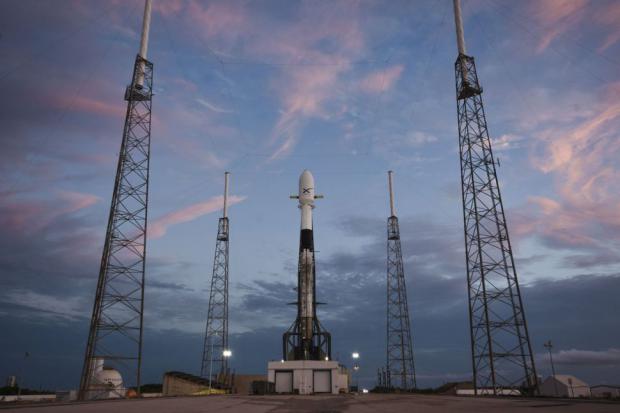
Breaking News
 Silver up over $2.26... Today! $71.24 (and Gold close to $4500)
Silver up over $2.26... Today! $71.24 (and Gold close to $4500)
 GARLAND FAVORITO: More and more fraud from the 2020 election in Fulton County, Georgia...
GARLAND FAVORITO: More and more fraud from the 2020 election in Fulton County, Georgia...
 Rep. Matt Gaetz tells Tucker Carlson that agents of the Israeli govt tried to blackmail his...
Rep. Matt Gaetz tells Tucker Carlson that agents of the Israeli govt tried to blackmail his...
 Trump: We need Greenland for national security… you have Russian and Chinese ships all over...
Trump: We need Greenland for national security… you have Russian and Chinese ships all over...
Top Tech News
 Perfect Aircrete, Kitchen Ingredients.
Perfect Aircrete, Kitchen Ingredients.
 Futuristic pixel-raising display lets you feel what's onscreen
Futuristic pixel-raising display lets you feel what's onscreen
 Cutting-Edge Facility Generates Pure Water and Hydrogen Fuel from Seawater for Mere Pennies
Cutting-Edge Facility Generates Pure Water and Hydrogen Fuel from Seawater for Mere Pennies
 This tiny dev board is packed with features for ambitious makers
This tiny dev board is packed with features for ambitious makers
 Scientists Discover Gel to Regrow Tooth Enamel
Scientists Discover Gel to Regrow Tooth Enamel
 Vitamin C and Dandelion Root Killing Cancer Cells -- as Former CDC Director Calls for COVID-19...
Vitamin C and Dandelion Root Killing Cancer Cells -- as Former CDC Director Calls for COVID-19...
 Galactic Brain: US firm plans space-based data centers, power grid to challenge China
Galactic Brain: US firm plans space-based data centers, power grid to challenge China
 A microbial cleanup for glyphosate just earned a patent. Here's why that matters
A microbial cleanup for glyphosate just earned a patent. Here's why that matters
 Japan Breaks Internet Speed Record with 5 Million Times Faster Data Transfer
Japan Breaks Internet Speed Record with 5 Million Times Faster Data Transfer
SpaceX to Launch 60 'Starlink' Internet Satellites Thursday

The third time could be the charm for Starlink's first 60 operational satellites.
This week, SpaceX will again try to loft the first 60 members of its Starlink internet-satellite megaconstellation.
If all goes according to plan, the 60 spacecraft will launch atop a Falcon 9 rocket Thursday night (May 23) from Florida's Cape Canaveral Air Force Station, SpaceX announced via Twitter today (May 20).
You can watch the liftoff — which will also feature a rocket-landing attempt on a ship at sea — here at Space.com when the time comes, courtesy of SpaceX or directly via the spaceflight company.
The Starlink satellites were originally scheduled to launch on May 15, but that attempt was called off due to high winds. SpaceX called off another try the following night to update software and conduct additional checks.
SpaceX envisions the Starlink network providing affordable internet access to people around the world. But that won't happen immediately; about 400 satellites will be needed to provide "minor" coverage and 800 for "moderate" coverage, SpaceX founder and CEO Elon Musk has said.

 Advanced Propulsion Resources Part 1 of 2
Advanced Propulsion Resources Part 1 of 2

